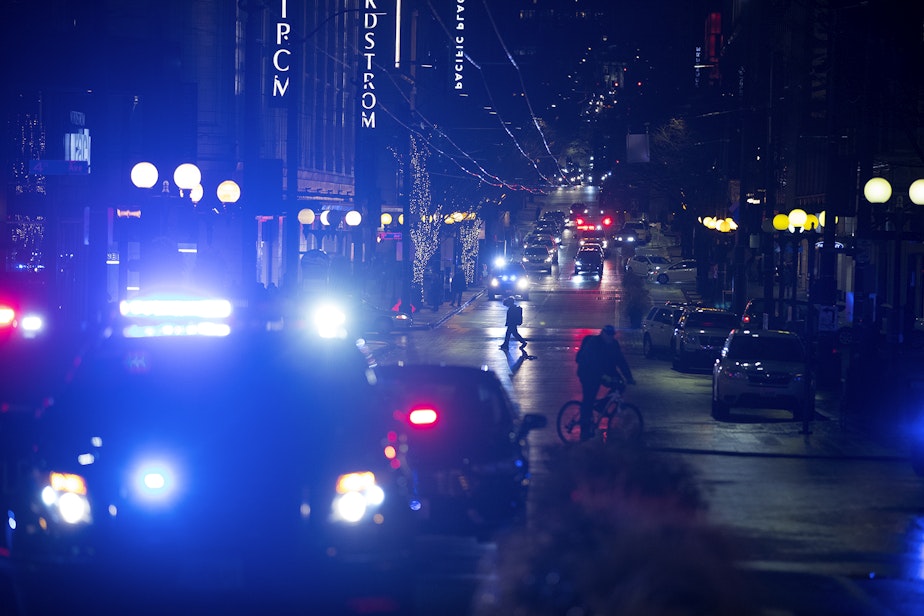Violent crime rose in WA in 2021 – yet crime fell overall

Washington state’s latest crime statistics show a 12.3% increase in violent crime in 2021 over the previous year, and a record number of murders at 325. Hate crimes and other offenses also increased.
But law enforcement agencies reported a surprising decrease in offenses overall.
Steven Strachan, who heads the Washington Association of Sheriffs and Police Chiefs, said at a press conference this week that the decrease was driven by some singular events in the past two years.
“Interestingly, total crime statistically went down slightly,” he said. “And that was due in part to an almost 79% decrease in identity theft and fraud. And that was related specifically to the tremendous spike in 2020 that we saw in unemployment fraud cases related to the pandemic.”
The state also had a 60% reduction in drug offenses last year. That was the result of the Washington Supreme Court’s “Blake” ruling in February 2021, which for a time put an end to arrests for simple drug possession.
While property crime decreased very slightly overall (1.8%), car thefts were up 27% in 2020 and theft of automobile parts increased 100%. Strachan said those incidents were concentrated in certain parts of the state.
“The trends we’re seeing — and we’re seeing this both in data and I’m also hearing this from chiefs and sheriffs — is that certain regions, Yakima, Tri-Cities, Pierce County, Seattle, parts of Snohomish, Clark… are really seeing a more intense rise in motor vehicle theft.”
Sponsored
But Strachan said those harder-hit communities could see more resources to address the trend. He said state lawmakers approved funding for those regions to do more aggressive investigation, and launch more prevention efforts.
The crime report also highlights the departure of 495 sworn law enforcement officers statewide, for a decline of 4.4% in a state that Strachan said was already the lowest-staffed in the nation.
Strachan said the informal feedback he’s getting indicates some departures stem from normal retirements. Other officers cite frustration with new state laws, a lack of facilities to accept people in behavioral health crisis, and a feeling that they can’t satisfy the expectations of crime victims.
“They don’t have the ability to provide justice for victims when they charge somebody with a crime and prosecutors too frequently don’t charge that crime, or they charge it with something lesser and they plea it out. That’s a real frustration across our state for many of our jurisdictions,” Strachan said.
He said staffing shortages seem to be a bit less acute in Eastern Washington compared to Western Washington, but noted that it’s a “gross generalization.”




